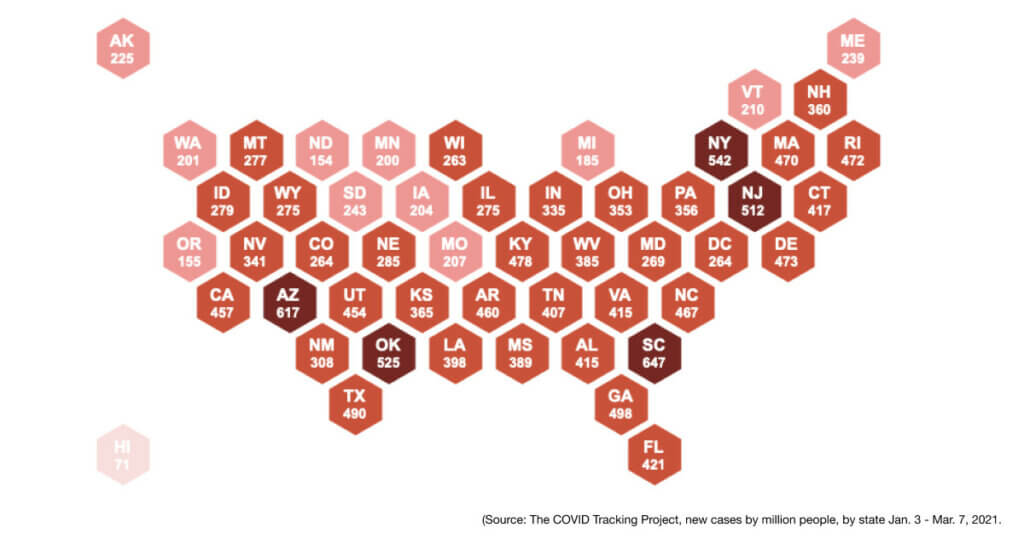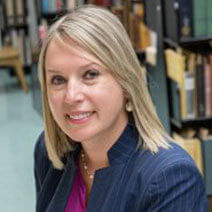The UCSF Archives and Special Collections is pleased to announce that we have received a Data Engagement Award for $24,934 from the National Network of Libraries of Medicine (NNLM) Region 5. These funds will support a new project, Data Journalism Course in a Box: The COVID Tracking Project Archives. We are grateful to the NNLM Region 5 Executive Director, Cathy Burroughs, for enabling our work to make the Covid Tracking Project Archive accessible with the support of the Sloan Foundation.
The Data Journalism Course in a Box (DJCB) is a project that aims to support journalism education by providing a rich body of data and critical analysis for educators to utilize in their instruction. The public relies on the media to learn about public health emergencies, such as the COVID-19 pandemic. This pandemic has shown how public health news can evolve quickly and the importance of conveying complex information to a broad audience effectively and accurately. Therefore, future journalists must be well-trained to analyze and communicate public health data.The data used to create the DJCB will be acquired from the COVID Tracking Project (CTP), a citizen-run and all-volunteer organization that tracked the first year of the COVID-19 pandemic. The CTP concluded collecting data on March 7, 2021, and the UCSF Archives and Special Collections preserves the website. Data and datasets from this project are some of the cleanest and best documented on the pandemic.
Datasets within the CTP have already had a notable impact; one such example is the COVID Racial Data Tracker. The COVID Racial Data Tracker is the first large-scale collection to track the effects of the pandemic on communities of color. The raw datasets from this collection and data analysis done by journalists has shown how good data journalism can bring awareness to the pandemic’s impact on underrepresented populations. Furthermore, Congress cited the tracker as a critical source for understanding the effects of the pandemic on different racial groups.
Creating the curriculum
We are thrilled to create the course by partnering with investigative reporter and adjunct lecturer, Tyler Dukes. Dukes is a reporter for The News & Observer in Raleigh, North Carolina, where he specializes in data and public records. His experience developing and teaching data journalism courses and his familiarity with the CTP are an asset to the project. “As a local reporter who made frequent use of COVID Tracking Project data, I saw firsthand how CTP volunteers filled critical information gaps that helped newsrooms reveal the pandemic’s often disproportionate and hidden impacts. The lessons learned during this massive effort – all meticulously documented and preserved in the CTP Archive – will empower future journalists to confront the complexities of public health data and use it to enhance their reporting.” Through this collaboration, the DJCB will be a robust curriculum that combines collected oral histories from former CTP staff and archival CTP resources. Once completed, the curriculum will be available online for free under a permissive open-source license in the Summer of 2023.
Outcomes
Through this curriculum, journalism students and public health communicators will learn proper data collection methodologies, communication and transparency in community-science initiatives. We look forward to utilizing the essential data captured in the CTP to establish an accessible course that promotes promising data journalism practices. Updates on the DJCB project will be available on the UCSF Archives and Special Collections blog, Brought to Light and the CTP Archive website.

